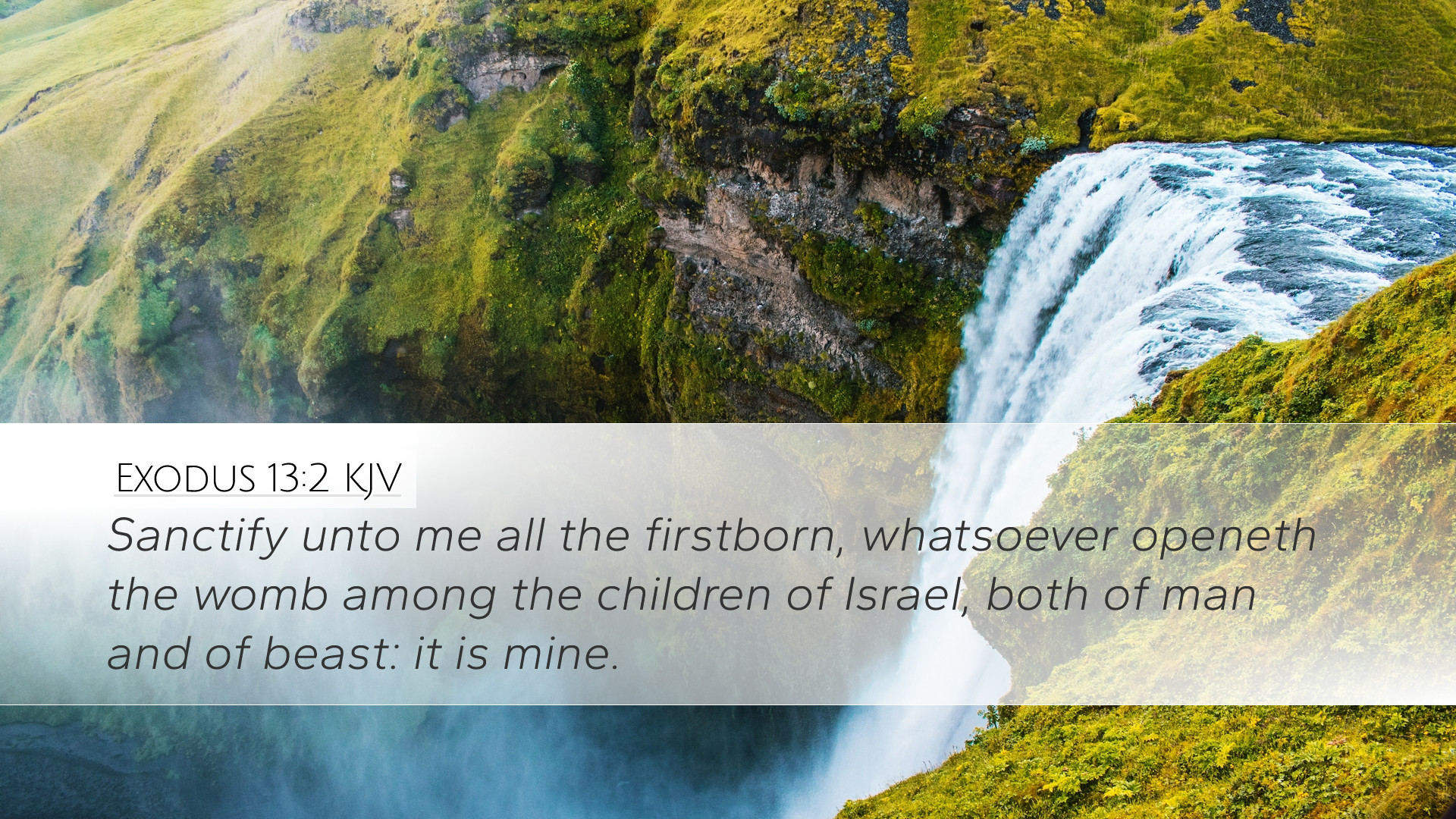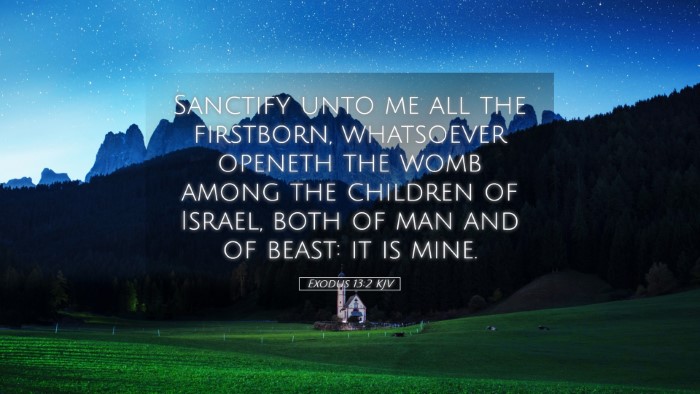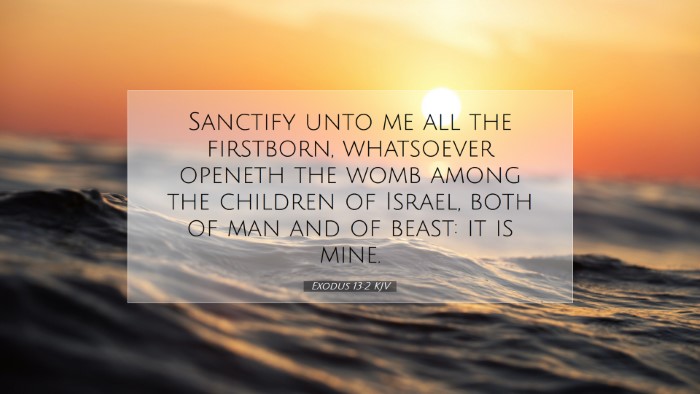Commentary on Exodus 13:2
"Sanctify unto me all the firstborn, whatsoever openeth the womb among the children of Israel, both of man and of beast: it is mine."
Introduction
This verse forms a pivotal command in the context of the Exodus narrative, setting the stage for the theological and ritual implications of the firstborn among the Israelites. Drawing from various public domain commentaries, we will explore its significance in both ancient Israelite culture and in its broader theological implications.
Theological Significance
Matthew Henry notes that the sanctification of the firstborn is a proclamation of God’s claim over His people. The firstborn is seen not only as a child but also as representative of the faithful in a covenantal relationship with God.
Albert Barnes elaborates on the idea that the firstborn had a unique status within the family that symbolized both a gift from God and a responsibility to serve Him. This command serves as a reminder that everything belongs to God, and the firstborn is to be devoted to Him as a sign of gratitude and acknowledgment of His sovereignty.
Cultural Context
In the ancient Near East, the firstborn held a position of honor and responsibility. Adam Clarke highlights this aspect, explaining how the firstborn son was often the chief heir of the family. By sanctifying the firstborn, the Israelites were not only commemorating their deliverance from Egypt but also aligning with the cultural norms that amplified the importance of the firstborn.
This command would later lead to the establishment of rites and practices such as the redemption of the firstborn, which is further elaborated upon in later scriptural texts.
Application in Worship
- Ritual Practice: Worship in ancient Israel was deeply tied to these commands, as the firstborn was often sacrificed or redeemed. This principle teaches the idea of consecration and dedication to God in the lives of His people.
- The Firstborn as a Foreshadowing: The sacrificial system in ancient Israel foreshadowed the ultimate sacrifice of Jesus Christ, the firstborn of all creation, emphasizing the importance of this theme throughout the Bible.
- Reminder of Divine Ownership: The firstborn represented a tangible reminder for the Israelites of God's mighty deliverance from Egypt and a continual acknowledgment of His ownership over them.
Reflections for Leaders and Theologians
For pastors and theologians, this verse serves as a profound truth about the nature of God’s claims over our lives. It invites reflection on what it means to dedicate ourselves to God in worship and service, much like the Israelites were called to do with their firstborns.
Moreover, it challenges leaders to consider how they instruct their communities about the importance of consecration and recognizing God’s ownership over every aspect of life, not just in ritualistic terms but in daily living and ethics.
Conclusion
Exodus 13:2 beckons us to recognize the holiness of God and His claims in our lives. Combining insights from Matthew Henry, Albert Barnes, and Adam Clarke allows a deeper understanding of the implications of this command for the people of Israel and for the followers of Christ today. The sanctification of the firstborn goes beyond mere ritual—it encapsulates a lifestyle of devotion and acknowledgment of God’s lordship.


